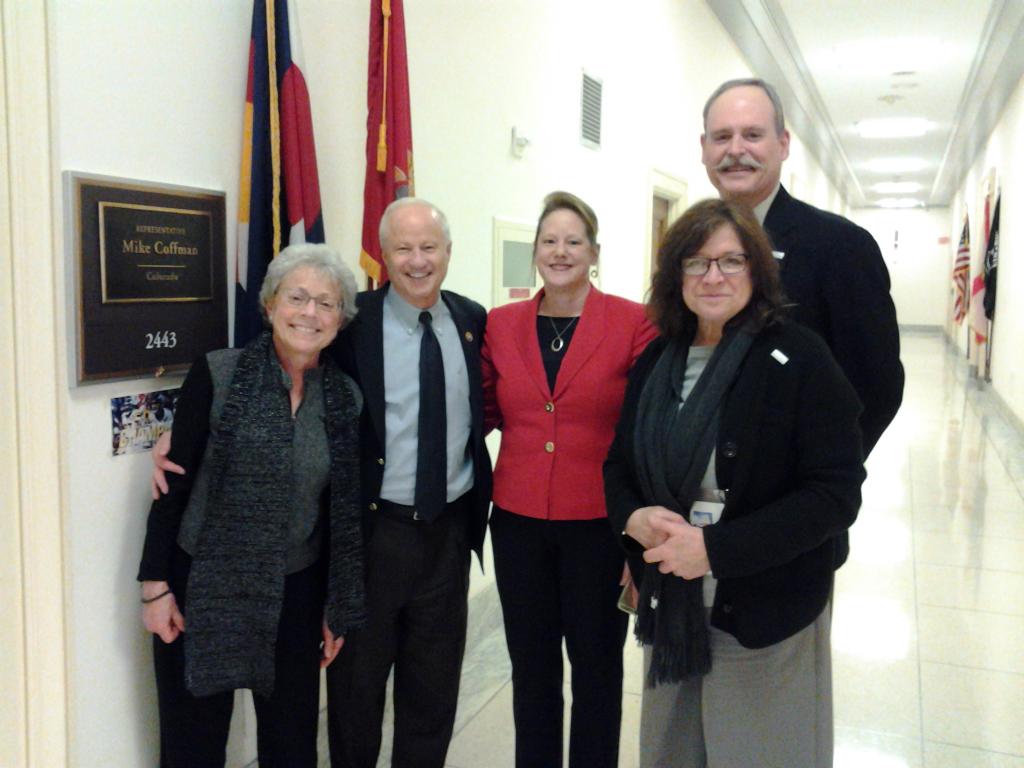Charles Brennan provided testimony in support of House Bill 24-1129, Protections for Delivery Network Company Drivers. CCLP is in support of HB24-1129.
Recent articles
CCLP testifies in support of TANF grant rule change
CCLP's Emeritus Advisor, Chaer Robert, provided written testimony in support of the CDHS rule on the COLA increase for TANF recipients. If the rule is adopted, the cost of living increase would go into effect on July 1, 2024.
CCLP testifies in support of updating protections for mobile home park residents
Charles Brennan provided testimony in support of House Bill 24-1294, Mobile Homes in Mobile Home Parks. CCLP is in support of HB24-1294.
CCLP’s legislative watch for April 5, 2024
For the 2024 legislative session, CCLP is keeping its eye on bills focused on expanding access to justice, removing administrative burden, preserving affordable communities, advocating for progressive tax and wage policies, and reducing health care costs.
Conference previews the future of skills training and employment

How do we build career pathways that help workers get the training and experience to advance into good paying jobs? Many in-demand jobs do not require a two- or four-year degree, but most require some kind of post-secondary training. In Colorado, this represents half of all the jobs in the state.
Recently, the National Skills Coalition held their annual Skills Summit in Washington, D.C. As coordinator of Skills2Compete Colorado, I attended, along with Laurie Harvey of CWEE, Paula Schriefer of the Spring Institute and Frank Waterous of The Bell Policy Center. (All of us are pictured with Rep. Mike Coffman in the photo accompanying this blog posting).
First on the agenda, we reviewed seven national priorities related to workforce development:
- Full funding for Workforce Innovation and Opportunity Act (WIOA). While Congress passed WIOA overwhelmingly in 2014, the funding level has declined by $400 million since 2010.
- Double the current funding for adult education and English as a second language curriculum. Funding for adult education has dropped 17 percent since 2010. While federally funded programs currently reach 1.5 million people, 36 million adults throughout the country lack the literacy and numeracy skills to enter most training programs. In Colorado, over 9 percent of working-age adults have not earned a high school diploma.
- Endorse the Student Right to Know Before You Go Act. What you study is far more important than where you study. The top three reasons students go to college is to improve employment opportunities, make more money and get a good job. Students need data on employment and earnings outcomes before investing their time and money. The difference in lifetime wages between high school and college graduates is $1 million. But the difference in lifetime wages between the lowest- and highest-paid college majors is $3.4 million. The Student’s Right to Know Before You Go Act would provide better information on post-college workforce results.
- Endorse the JOBS Act, which would modernize Pell Grants, the money the U.S. federal government provides to students to pay for college. Currently, 25 percent of undergraduate credentials are short-term, no-degree programs, but only 4 percent of Pell dollars go to these programs. The average post-secondary certificate holder has 20 percent higher lifetime earnings than a person with only a high school diploma. This represents a good investment for Pell funding.
- Endorse the Community College to Career Fund Act to provide dedicated support through the Perkins Act for partnerships between industry and community colleges. The Perkins Act funds career and technical education both at the high-school level as well as the post-secondary level.
- Redirect the Work Opportunity Tax Credit (WOTC) to support apprenticeships and work-based learning. The current WOTC provides a credit for employers to cover a portion of wages paid to certain employees with barriers to employment. Redirecting the credit to cover training would advance the skills of the employee, benefitting both employers and employees.
- Pass Legislation to lift current restrictions on TANF skills training. Nationally, less than 8 percent of Temporary Assistance to Needy Families (TANF) recipients have an education beyond high school. Yet TANF law caps participation in education at 30 percent of the caseload and severely limits what kind and how much education counts toward the “work participation rate.”
After being thoroughly briefed on skills training and employment issues, the Colorado delegation met with staff from Sen. Michael Bennet’s and Rep. Jared Polis’s offices, since these legislators serve on the committees that are likely to hear about these policy matters.
Over the next year or so, Congress will likely work on a new Higher Education Act. This larger bill could include Pell grant modernization and data on employment outcomes of educational programs. The Student Right to Know Before You Go and the JOBS Act could build momentum for inclusion of these issues.
With a renewed understanding of the policy changes ahead in employment and skills training, the Colorado delegation headed back home with tools and knowledge that we hope will benefit low-income Coloradans for months and years to come.
– Chaer Robert





